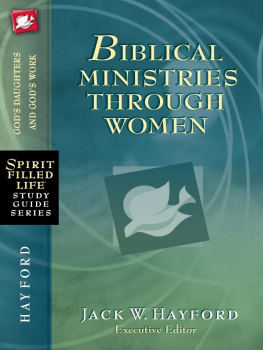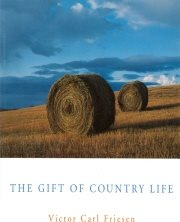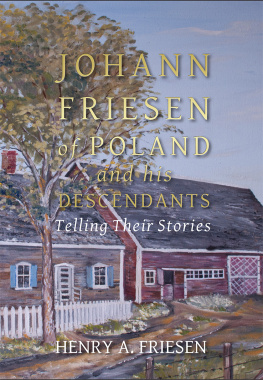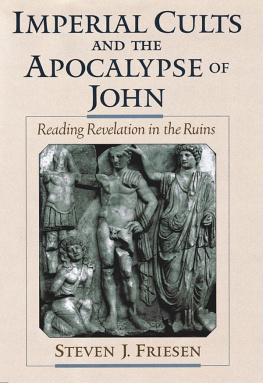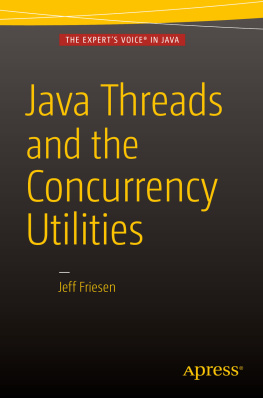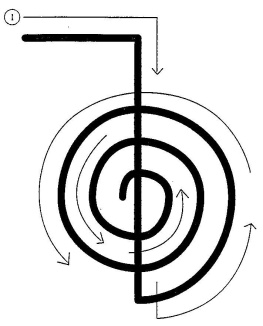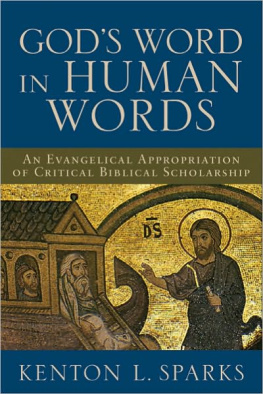DECISION MAKING AND THE WILL OF GOD
published by Multnomah Books
A division of Random House, Inc.
Revised and updated edition
1980, 2004 by Garry Friesen
Unless otherwise indicated, Scripture quotations are from:
New American Standard Bible (N ASB ) 1960, 1977, 1995
by the Lockman Foundation. Used by permission.
The Holy Bible, New International Version (NIV)
1973, 1984 by International Bible Society,
used by permission of Zondervan Publishing House
The Holy Bible, New King James Version (N KJV )
1984 by Thomas Nelson, Inc.
Holy Bible, New Living Translation (NLT)
1996. Used by permission of Tyndale House Publishers, Inc. All rights reserved.
The Bible: James Moffatt Translation 1935 by Harper Collins.
Published by Kregel Publications, Grand Rapids, MI.
Used by permission of the publisher. All rights reserved.
Multnomah and its mountain colophon are registered trademarks
of Random House Inc.
ALL RIGHTS RESERVED
No part of this publication may be reproduced, stored in a retrieval system, or transmitted, in any form or by any meanselectronic, mechanical, photocopying, recording, or otherwisewithout prior written permission.
For information:
MULTNOMAH BOOKS
12265 ORACLE BOULEVARD, SUITE 200
COLORADO SPRINGS, CO 80921
Library of Congress Cataloging in Publication Data
Friesen, Garry, 1947
Decision making and the will of God.
1. GodWill. 2. Decision-making (Ethics)
3. Christian life1960
1. Maxson, J. Robin, 1947 joint author. II. Title.
BV4501.2.F767 248.4 80-24592
eISBN: 978-0-307-56924-0
v3.1_r5
To the wonderful women who have graced my life:
Lucille Muz Friesen (19241991),
Lonie (Friesen) Tucker (19531997),
Alice (Timm) Friesen, Cindy (Friesen) Dombrowski,
Barbara (Rosslip) Friesen, Brittany and Erica Friesen,
and to Robins wife, Louise Maxson,
without whose intervention this would have been a much longer book!
To the students of Multnomah Bible College and the men
of Aslans How who make community in Christ a reality.
To the believers at United Evangelical Free Church
of Klamath Falls, OR, who helped to nurture this book.
CONTENTS
Part 1
You Have Heard It Said:
The Traditional View Presented
Part 2
The Case of the Missing Dot:
The Traditional View Critiqued
Part 3
The Way of Wisdom:
The Wisdom View Explained
Part 4
Deciding the Big Ones:
The Wisdom View Applied
FOREWORD TO THE FIRST EDITION
S acred cows make the best hamburger, but the meat can be hard to swallow.
Christians cherish a mythology that, along with their theology, shapes and directs their lives. Perhaps no myth more strongly influences us than our understanding of how to know the will of God. We want to make right decisions, for we realize that the decisions we make turn around and make us. As we choose one end of the road, we choose the other. When we select a lifes work, a lifes partner, or a college, we desire Gods direction in those choices.
Yet when we ask, How can I know the will of God? we may be raising a pagan question. In the ancient world kings and generals consulted the oracles to gain guidance from the gods for their plans. The oracles provided such direction by vague and illusive counsel, and worshipers could read into the enigmatic responses what their hunches told them to do. Convinced that their plans had the stamp of the gods, generals could lead their troops into battle with unfounded courage. By 300 B.C. , however, the oracles had gone out of business. Too often they had led their devotees to staggering defeat.
If we ask, How can I know the will of God? we may be asking the wrong question. The Scriptures do not command us to find Gods will for most of lifes choices, nor do we have any passage instructing us on how it can be determined. Equally significant, the Christian community has never agreed on how God provides us with such special revelation. Yet we persist in searching for Gods will because decisions require thought and sap energy. We seek relief from the responsibility of decision making and we feel less threatened by being passive rather than active when making important choices.
In this book, Dr. Garry Friesen insists that we must change the question. Instead of wondering, How do I find the will of God? a better question to pursue is, How do I make good decisions? Answering that question stands as the central purpose of this book. While the author challenges the traditional Christian approach to decision making as both unbiblical and unworkable, he does not stop there. He moves on to give us specific practical principles that we can apply when making everyday decisions that range from minor choices to vital problems. Through a study of these pages we are delivered from two crippling extremes: unwarranted delay and vacillation on the one hand, and impulsive, emotionally loaded judgments on the other. As a result, we achieve freedom to live spiritually productive lives.
The Bible does not provide a map for life, only a compass. But through this book you will discover how the compass can guide you over the bewildering terrain.
Haddon W. Robinson
Harold J. Ockenga Distinguished Professor of Preaching
Gordon-Conwell Theological Seminary
FOREWORD TO THE REVISED EDITION
M y brother and I grew up with the principles of Decision Making and the Will of God as theological background music for our lives. We heard our father give the talk about decision making enough times that we could reprise the basic outline at will. And we enjoyed showing our friends where we were mentioned by name in Daddys book (as examples of the blessings of marriage).
Neither of us actually read Decision Making until we got to college and found ourselves surrounded by thoughtful young Christians, on our own for the first time, and faced with myriad important decisions that would shape the rest of our lives. What major should I choose? What career should I pursue? Should I get married, and if so, to whom and when? Although Mike and I were not necessarily any more certain than our peers about the answers to such weighty questions, we noticed that we were often significantly less anxious about them, because the theological paradigm we had picked up liberated us from the fear of missing Gods individual will for our lives. And so we found ourselves, time and again, in the cafeteria, the coffee shop, the dorm lounge, explaining the basic critique of the idea that God has a secret, individual will for the life of each believer that its our job to figure out, and describing the freedom and responsibility that we each have to make wise choices about our lives. As we learned how to answer our friends thoughtful challenges and questions, we gained a clearer understanding and renewed appreciation for the approach to decision making that was virtually second nature to us.
As I came to follow in the footsteps of my Uncle Garry and entered graduate school in Bible and theology, Decision Making and the Will of God undergirded my confidence in both the process and the particular conclusion of my vocational decision. With prayer for wisdom and the guidance of wise counselors, I had found a line of work that was a good match for my gifts, temperament, and passions, and was grateful that God sovereignly provided opportunities to pursue it. Moreover, I believed that this work need not be an impractical, ivory tower pursuit, but could make a positive difference in peoples lives. This was not simply a theoretical conviction for me, but something I had firsthand evidence of. Over the years, as I on occasion had outlined the major theses of


